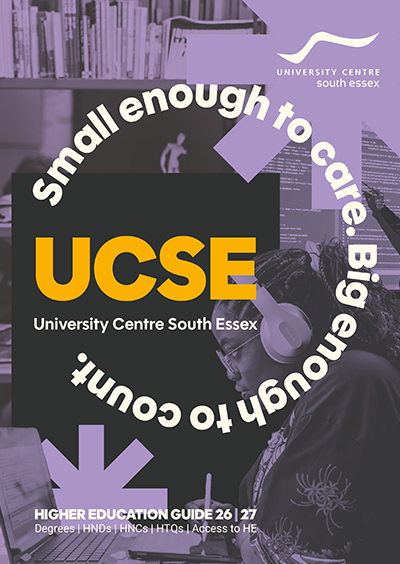Level 6
Animation BA (Hons)
| Duration | Age Group | Study | Start | Cost | Available Locations |
|---|---|---|---|---|---|
| 3 YEARS | ADULT | FULL TIME |
15/09/2026 |
£9,535 per year * | Thurrock Campus |
| Duration | Age Group | Study | Start | Cost | Available Locations |
|---|---|---|---|---|---|
| 3 YEARS | ADULT | FULL TIME |
15/09/2026 |
£9,535 per year * | Thurrock Campus |
Share On
Overview
This course is currently delivered at our Basildon campus. From September 2026, all year 1 students enrolled on the course will be based at our Thurrock campus.
UCAS Course code: W615
This course is validated by the University of the Arts London (UAL)
BA (Hons) Animation is a practise-led course, with the option to choose one of two specialist pathways: Pre-Production or Auteur. You will develop production skills, setting your goals within the business of animation and managing your workflow to succeed as a creative.
You will study traditional art, design and production skills and the principles of animation. This aims to support further studies in 2D & 3D animation, VFX and VR design.
Digital drawing sessions will broaden your knowledge and technical skills. Weekly workshops will help to express yourself and develop your creative process.
As you progress through the course you will be encouraged to think about the pathway you are going to choose in Year 3.
The Pre-Production pathway will focus on creating an expansive portfolio that could be taken forward to a future production. You can explore a range of outcomes including, but not limited to, an animation, an interactive story through VR or visual novel, or choose your own adventure game. This is for those who may be more interested in the illustrative elements of the course.
The Auteur pathway will focus on you as a visionary. You will produce a much smaller pre-production portfolio but also produce an animation or an animation related outcome as part of your process. This is for those who are more interested in the animation elements of the course.
Entry Requirements
You will need a minimum of 64 UCAS points from one or more of the following:
- A levels
- T levels
- BTEC/UAL Extended Diploma
- Foundation Diploma in Art and Design (Level 3 or 4)
- Or Equivalent EU/International qualifications such as International Baccalaureate Diploma
- Plus English GCSE passes at grade 4 or above (grade A*-C)
This list is not exhaustive other qualifications may be considered. Entry to this course will also be determined by the quality of your application looking primarily at your portfolio/showreel of work, personal statement and reference.
Applicants who do not meet these course entry requirements may still be considered in exceptional cases. The course team will consider each application that demonstrates additional strengths and alternative evidence.
Course Structure
Year One units (Level 4)
- Theory as Practice 1
- Animation & Art Fundamentals
- Storytelling
- Pre-Production 1
- Production 1
Year Two units (Level 5)
- Theory as Practice 2
- Creative Industry Practices
- Performance & VFX
- Pre-Production 2
- Production 2
Year Three units (Level 6)
- Theory as Practice 3
- Creative Industry Brief
- Pre-Production 3
- Pre-Production Pathway
- Auteur Pathway
- Production 3
- Pre-Production Pathway
- Auteur Pathway
Teaching & Learning
Contact Hours: 13 hours per week. Plus Independent Study (suggested 30 hours per week).
Assessment & Feedback
All assessment on BA (Hons) Animation is via coursework; there are no exams.
Coursework is assessed in a range of different ways to accommodate a variety of learning styles and aptitudes.
You will receive on-going feedback as part of your one-to-one sessions with your unit teachers. You will also receive summative feedback on all formal assessments undertaken by coursework. Feedback is intended to help you learn and you are encouraged to discuss it with your unit leader. Feedback can be given in a range of different ways in order to accommodate a variety of learning styles and aptitudes including group critiques, recorded verbal feedback and written feedback.
Course Cost
Adult,
full_time:
£9,535 per year
Fees are per academic year for Home/UK students.
The following course-related costs are included in the fees:
- Guest speakers, visiting lecturers and industry focussed workshops will be included in your course over the three years.
- Third Year students will have the opportunity to showcase their final year work at the end of their studies. This may be a local, national or online platform. Event/exhibition costs will be covered by the Faculty of HE. In the past this has included Vertex Conference. Students will be responsible for any additional costs associated with the production of their personal project (ie: printing, materials).
- Annual £20 of printing credit per year.
Additional course costs can be found here
What Next...
Progression & Recent Success:
Many of our graduates find employment with animation and design studios or set up as freelance animators, designers, or illustrators. Some have chosen to continue their studies at the postgraduate (Masters) level.
Live briefs:
Students have engaged with many opportunities including:
BBC, Creative Basildon, D&AD New Blood, Estuary Festival, Metal Culture, SEESOW, Six Red Squares, The National Gallery, Tinmouse, Village Green Festival.
Recent graduate destinations include:
BBC, Cinesite, DNEG, ILM, Six Red Squares, Storytime Magazine, Toon Boom, Universal.
Recent post-graduate destinations include:
MA Animation at UAL, MA Illustration at Falmouth or MA Film and Television at University of Bristol. We also provide a Professional Graduate Certificate in Education course.
Success Stories...
The course helped me build confidence, learn how to manage my time, set goals, and work to deadlines. I was encouraged to push myself creatively, particularly with areas such as character design and anatomy, which have become central to my work.

My name is Spencer Glen, I’m a self-employed artist and Animation graduate, currently running my own creative business and selling my work at comic conventions across the UK. I studied at South Essex Colleges Group (SECG) from 2016 to 2018, before returning to education at University Centre South Essex (UCSE) from 2021 to 2024, where I completed a BA (Hons) Animation, achieving a First-Class degree.
I originally chose South Essex Colleges Group because it was local and offered a Creative Media course. After taking a three-year break from education, I decided to return and continue my studies at UCSE. Having already built relationships with the tutors and being familiar with the learning environment, it felt like the right place to come back, refocus, and develop my creative skills. Returning to SECG and UCSE turned out to be one of the best decisions I’ve ever made.
My journey into higher education wasn’t straightforward. During my college years, I faced personal and health challenges that affected my studies. Taking time away from education allowed me to rebuild my confidence and return with a clearer sense of purpose. With encouragement and support from tutors, I was able to restart my education, settle into a new campus environment, and fully commit to my degree.
During my time at UCSE, I developed both my creative and personal skills. The course helped me build confidence, create a strong social circle and learn how to manage my time, set goals, and work to deadlines. I was encouraged to push myself creatively, particularly with areas such as character design and anatomy, which have become central to my work.
Since completing my degree, I’ve taken a unique path into self-employment. What started as a single piece of artwork created for a comic convention quickly grew into a creative business. I now sell my artwork, prints, and products at conventions across England and Scotland, building my stock, improving my stall and growing a supportive community around my work.
My time at SECG and UCSE played a huge role in preparing me for this. The supportive learning environment, dedicated tutors, and access to industry-relevant equipment and software.
One of my favourite memories from university was the Japan trip in my third year, a unique experience and a memorable way to finish my studies alongside my classmates and tutors.
The best thing about higher education is the opportunity to focus on a subject you’re passionate about while building confidence and practical skills. I would recommend South Essex Colleges Group and University Centre South Essex for their supportive staff, engaging courses and commitment to helping students reach their potential.
My ambition is to continue growing my creative business, reach new audiences, and explore the possibility of teaching in the future, giving back to students in the same way I was supported.

